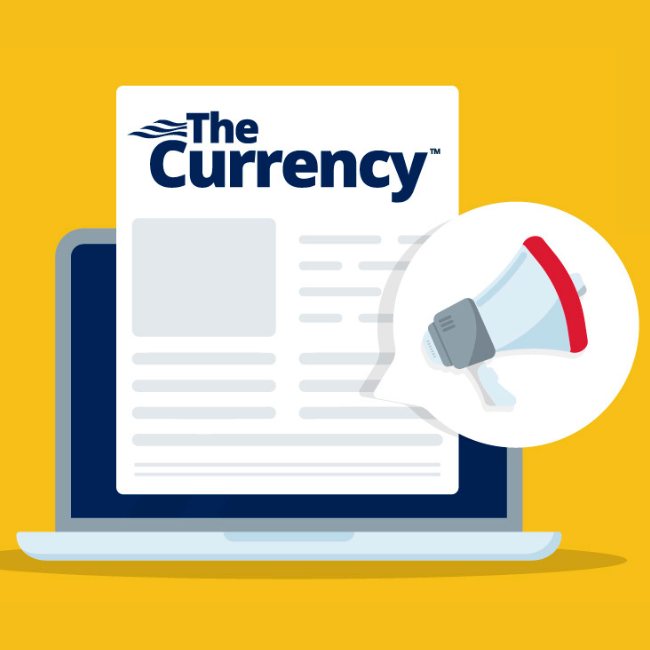Americans' most-asked money questions
Americans’ 10 most-asked money questions
Americans’ 10 most-asked money questions


Listen
·Over six in 10 Americans (62%) don’t talk about money – they’d rather wait in line at the DMV (29%), sit on jury duty (27%), miss a flight (26%), or have a TV show spoiled (26%) than tell a stranger how much money they have. People may not be talking, but they are searching. In 2024, more Americans searched Google for “how to invest in stocks” and “net worth by age” than “how to eat healthy” or “how to get smarter.” The most-common financial how-to asked online? “How to write a check.”*
Here are your top questions about money — how to make it, save it, and manage it — answered.
Most-searched money how-tos
Empower’s analysis of Google search data reveals a look inside the minds of Americans.
1 How do I write a check?
“How to write a check” is the money question coming to mind for many Americans, with 187,000 searches each month.
If you haven’t written a check before (or in a long while) you might be confused about what goes where, but it’s simple once you know the details. You should fill in the check as follows:
- Step 1: Date the check in the top right corner.
- Step 2: On the next line of the check (to the right of “Pay to the order of”) write the name of the person you want to pay.
- Step 3: On the far right of this line, write the dollar amount you wish to pay numerically, e.g. $105.00.
- Step 4: On the next line, write the dollar amount you wish to pay in words, e.g. “One hundred and five dollars and 00/100.” To write the cents on a check, you should note the number over 100.
- Step 5: On the next line, fill out the memo with a reference for what the check is for, e.g. “Wedding gift.”
- Step 6: On this same line, sign your name in the right-hand corner.
2 How can I make money online?
When you’re trying to pay off debt, save for retirement, or reach any other financial goal, having an additional income stream can go a long way. Americans are wondering how they can increase their bank balance without leaving home, racking up 107,000 searches a month for “how to make money online.” Related queries like “how to make money” (67,000 searches), “how to make money fast” (43,000 searches), and “how to get rich” (16,000 searches) are also popular.
3 How do I invest in stocks?
Investing in stocks can be a great way to potentially grow your wealth over time, but if you’re new to investing it can be difficult to know where to start. Each month, Google records 32,000 searches for “How to invest in stocks” and 18,000 for “how to invest.” When investing in stocks, you’ll first need to decide if you want to work with a financial professional who will help you create a tailored financial plan in line with your goals, or if you’ll take a do-it-yourself approach. If you want to select your own stocks or funds, you’ll need to open a brokerage account at a financial institution. Investing involves risk, including possible loss of principal.
4 How can I save money?
Americans are wondering how to grow their bank balances, searching for “how to save money” 31,000 times per month. When it comes to saving money, it can be useful to start by outlining what you’re saving for, how much money you anticipate needing to save, and when you need to save it by. This enables you to divide your saving needs into short- and long-term goals. Short-term goals are typically something you will need money for in the next 18 months (like a vacation or wedding), while long-term goals are typically three years or more in the future (like buying a home or retiring).
You may choose to save for short-term goals in a highly liquid account like a high-yield savings account and simultaneously save for your long-term goals through strategic investments. In either case, some people can find it helpful to “pay themselves” — or committing to setting aside a certain amount in savings every month — before spending money. This can help you get into the mindset of prioritizing saving over making impulse purchases.
Read more: Saving for short-term vs long-term financial goals
5 How do I freeze my credit?
Questions on credit are top of mind for many Americans: People look up “How to freeze your credit” 28,000 times each month, while “how to build credit” (24,000) and “how to check your credit score” (20,000) are also popular search queries. Freezing your credit can help protect from identity theft by preventing creditors from accessing your credit report.
You can freeze your credit online by visiting the Equifax, Experian, and TransUnion websites, making an account, and following the prompts. It’s free to freeze and unfreeze your credit, but you’ll need to unfreeze it if you want to apply for new credit. For full instructions, visit the websites of each credit bureau for specific details on how to manage your freeze.
6 How can I buy a house?
Homeownership is a goal for many Americans, clocking 24,000 searches each month. Buying a house generally involves these key steps:
- Assess your finances: Check your credit score, savings, and debt to determine your readiness. Aim for a strong credit score and save for a down payment. The typical down payment on a house for a first-time buyer is about 8% of the home price.1
- Set a budget: Calculate what you can afford based on your income, savings, and monthly expenses. Use a mortgage calculator online to estimate your monthly payments, including property taxes and insurance.
- Get pre-approved for a mortgage: Contact lenders to secure a pre-approval letter, which shows sellers you are a serious buyer and outlines how much you can borrow.
- Find a real estate agent: Partner with an experienced agent who knows the local market and can guide you through the process.
- Search for a home: Identify your priorities like location, size, and amenities. Visit open houses and explore listings online.
- Make an offer: Once you find a home, work with your agent to craft a competitive offer. Be prepared to negotiate with the seller.
- Conduct inspections: After your offer is accepted, schedule inspections to check the property’s condition and negotiate repairs if needed.
- Finalize financing: Complete the mortgage process by submitting all the necessary documentation and securing the loan.
- Close on the property: Review and sign closing documents, pay closing costs, and take ownership of your new home.
7 How do I file taxes?
In the U.S., taxes are due on the 15th day of the fourth month after your fiscal year ends.2 Typically, that day is April 15, though if it falls on a Saturday, Sunday or legal holiday, the due date is delayed until the next business day.
Before filing, you will need the forms and receipts that show the money you earned and the tax-deductible expenses you paid, including a W-2 form from each employer and other earning and interest statements like a 1099 and 1099-INT. You’ll also need to choose your filing status: Single, married, or married filing separately.
Once you’ve gathered your documents, there are multiple ways that you can file your taxes: You can work with a tax professional in person or online, use an online tax preparation software to file electronically, or use IRS Direct File — a new pilot program that will allow eligible filers in 12 states to file their federal taxes for free directly with the IRS.
Read more: Taxes 101: Understanding the basics
8 How do I fill out a money order?
”How to fill out a money order” is searched 19,000 times a month, on average. A money order allows you to securely send up to $1,000 in exchange for a small fee. Money orders can be purchased at a bank, credit union, the U.S. Post Office, or some supermarket and convenient store locations. Here’s how to fill out a money order:
- Fill in the recipient's (or business’) name and their address
- Write your name and address in the purchaser section
- Add notes to the memo field, e.g. your account number if paying a bill
- Sign the front of the money order where it says "purchaser's signature"
- Keep your receipt for tracking
9 How do I negotiate salary?
“How to negotiate salary” is a question searched approximately 17,000 per month, underscoring how vital this skill is to workers across industries. Successful salary negotiation starts with preparation: Research market rates for your role, industry, and location using tools like Glassdoor, Payscale, or LinkedIn Salary Insights. Set up a specific time to meet with your manager to discuss your compensation or raise the topic during your annual review. Come to the conversation with data and a clear understanding of the value you provide to the company, highlighting key achievements and skills. Present your salary expectations confidently as a range, with your ideal figure at the lower end to allow for flexibility.
10 How can I open a Roth IRA?
A Roth IRA is a type of individual retirement account. When you have a Roth IRA, you contribute after-tax dollars — up to a certain limit every year. Each month, Google tallies 15,000 searches from people wondering how to open a Roth IRA and boost their retirement savings. Roth IRA accounts are only offered by qualifying financial institutions. That generally includes federally insured credit unions and banks, so if you already hold accounts with these types of institutions, you might want to ask about Roth IRA options. Once you decide on an option, reach out to the financial institution to set things in motion. Ask them what you'll need to set up your account. Make an appointment or find out if you can open an account online.
Get financially happy
Put your money to work for life and play
*Search metrics sourced by Empower using Ahrefs Keyword Explorer, December 2024.
1 Rocket Mortgage, “What Is the Average Down Payment On A House?” April 2024.
2 IRS, “Calendar year filers (most common),” November 2024.
RO4103116-1224
The content contained in this blog post is intended for general informational purposes only and is not meant to constitute legal, tax, accounting or investment advice. You should consult a qualified legal or tax professional regarding your specific situation. No part of this blog, nor the links contained therein is a solicitation or offer to sell securities. Compensation for freelance contributions not to exceed $1,250. Third-party data is obtained from sources believed to be reliable; however, Empower cannot guarantee the accuracy, timeliness, completeness or fitness of this data for any particular purpose. Third-party links are provided solely as a convenience and do not imply an affiliation, endorsement or approval by Empower of the contents on such third-party websites. This article is based on current events, research, and developments at the time of publication, which may change over time.
Certain sections of this blog may contain forward-looking statements that are based on our reasonable expectations, estimates, projections and assumptions. Past performance is not a guarantee of future return, nor is it indicative of future performance. Investing involves risk. The value of your investment will fluctuate and you may lose money.
Certified Financial Planner Board of Standards Inc. (CFP Board) owns the certification marks CFP®, CERTIFIED FINANCIAL PLANNER™, CFP® (with plaque design), and CFP® (with flame design) in the U.S., which it authorizes use of by individuals who successfully complete CFP Board's initial and ongoing certification requirements.





